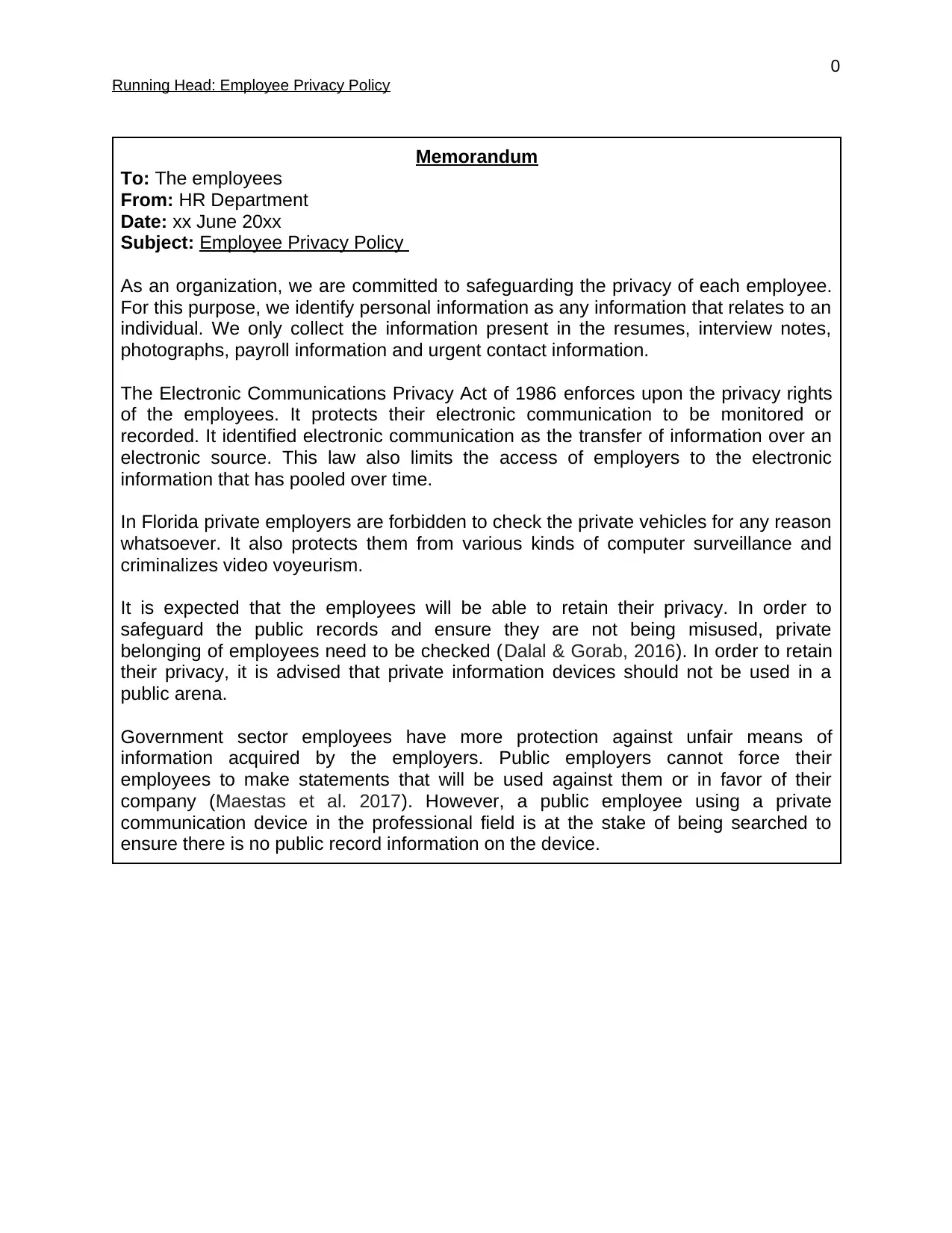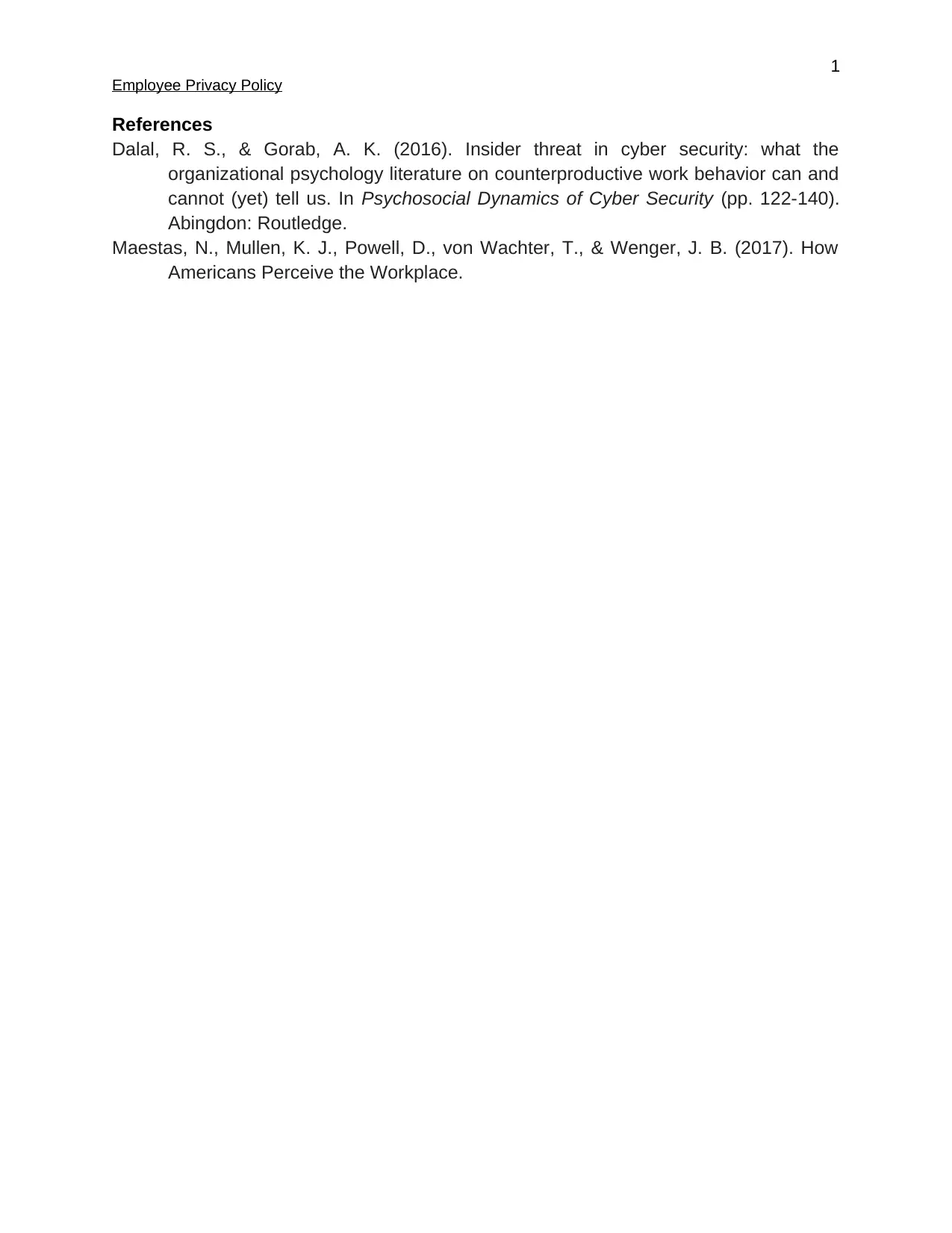Employee Privacy Policy: Workplace and Legal Considerations
VerifiedAdded on 2022/12/12
|2
|412
|39
Report
AI Summary
This report examines employee privacy policies, focusing on the protection of employee information within an organization. It outlines the importance of safeguarding personal data, including resumes, interview notes, and payroll information. The report references the Electronic Communications Privacy Act of 1986, which protects employees' electronic communications from unauthorized monitoring. It also discusses the legal landscape in Florida regarding private employers' access to employee information and the restrictions on surveillance. Furthermore, it highlights the distinction between public and private sector employees concerning privacy rights, particularly regarding the use of private communication devices in a professional context and the potential for public record searches. The report emphasizes the need for employees to maintain privacy while acknowledging the necessity for some level of information access to protect public records and ensure responsible data handling.
1 out of 2








![[object Object]](/_next/static/media/star-bottom.7253800d.svg)